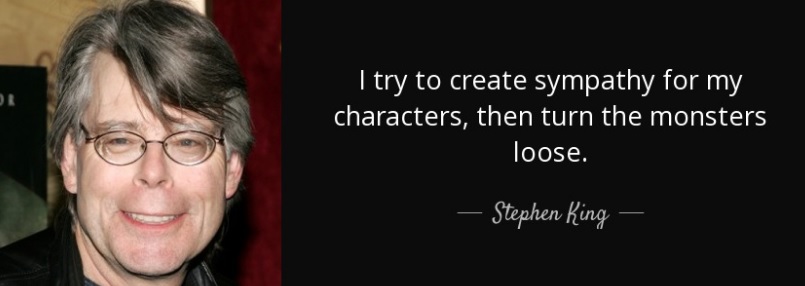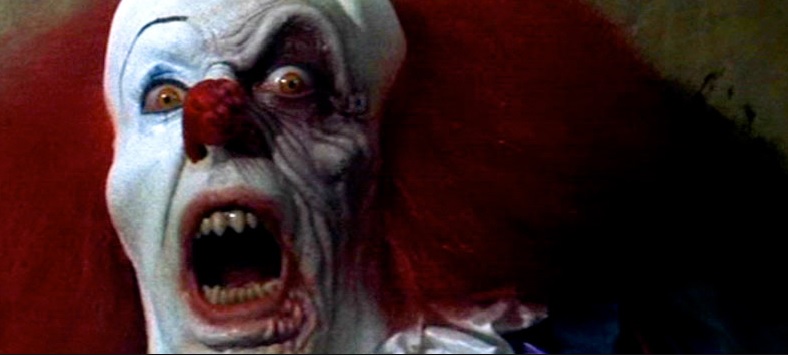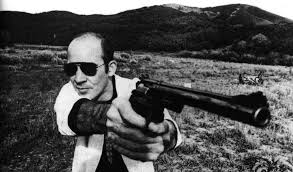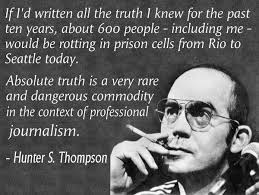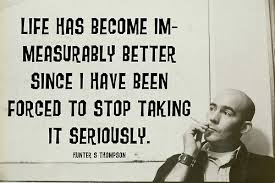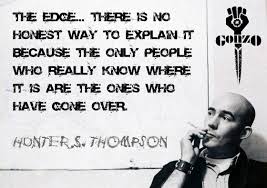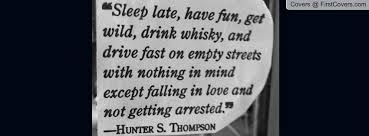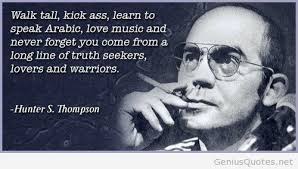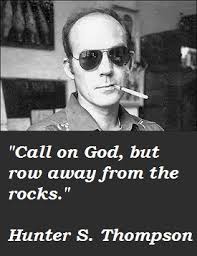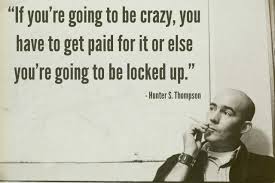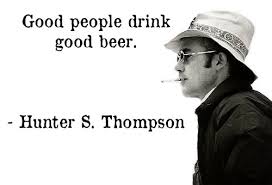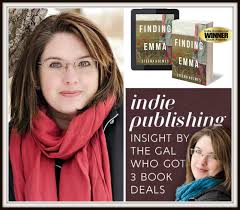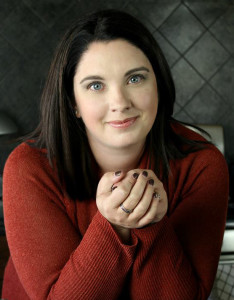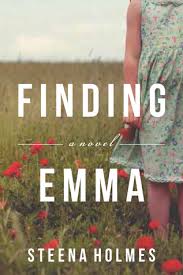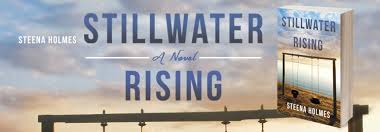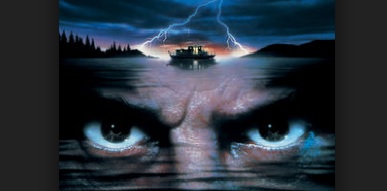 We’re fascinated by monsters. Violent horror movies. Psychological crime thrillers. Blood, guts, and terror are blockbusters. They’ve been bestsellers for generations. Something’s buried deep in our collective subconscious that craves fright—something hard-wired in our brains that physiologically reacts in a fight-or-flight response when facing horrific, brutal, and shocking creatures and events.
We’re fascinated by monsters. Violent horror movies. Psychological crime thrillers. Blood, guts, and terror are blockbusters. They’ve been bestsellers for generations. Something’s buried deep in our collective subconscious that craves fright—something hard-wired in our brains that physiologically reacts in a fight-or-flight response when facing horrific, brutal, and shocking creatures and events.
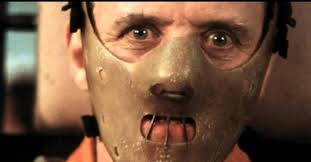 We know lots of fictional monsters. Freddy Krueger. Norman Bates. Hannibal Lector. They’re household names. We love watching them perform—from a safe distance. But most know nothing of real-life monsters like Michael Oros, Billy Ray Shaughnessy, Esa Raasanen, and David Shearing. I guarantee these creeps will scare the living shit out of you because I know who they are…what they’ve done…what they can do…
We know lots of fictional monsters. Freddy Krueger. Norman Bates. Hannibal Lector. They’re household names. We love watching them perform—from a safe distance. But most know nothing of real-life monsters like Michael Oros, Billy Ray Shaughnessy, Esa Raasanen, and David Shearing. I guarantee these creeps will scare the living shit out of you because I know who they are…what they’ve done…what they can do…
I’ve investigated them. I’ve written about them. And I’ll tell you about these true-life monsters in a bit.
So, why do we love fright? Because fright gives us pleasure.
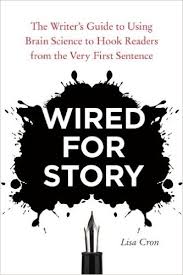 My internet friend, Lisa Cron, wrote Wired For Story. This was a game changer for me. As a crime thriller author, I wanted to know what makes psychological crime thriller readers tick—why so many are fascinated with death—so I could write better stories.
My internet friend, Lisa Cron, wrote Wired For Story. This was a game changer for me. As a crime thriller author, I wanted to know what makes psychological crime thriller readers tick—why so many are fascinated with death—so I could write better stories.
Particularly murder stories.
Lisa explained shock is the triggering mechanism for releasing our brain’s chemicals that active a fight-or-flight response. Our brains are lightning fast at assessing threats. Shock stimulus shoots adrenaline, oxytocin, endorphins, and dopamine re-uptakes through our neurotransmitters. This mentally and physically prepares our neuromuscular systems for a drastic response. It shoves us to the edge of the mental cliff.
Ready to run. Or fit to fight. But not to fall.
These natural chemicals are also responsible for giving us pleasure. This shock rush is like crack to the brain and it craves a repeat—provided we know we’re in a safe environment—subconsciously reassured when we’re at home, quietly watching TV or reading a book.
Lisa says more about why our brains crave fright. Ultimately, our brain has one overall responsibility for the rest of our body.
To ensure our survival.
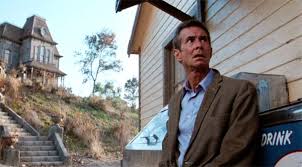 Our brains evaluate everything we encounter with a simple question. Is this going to help me or hurt me? Not just physically.
Our brains evaluate everything we encounter with a simple question. Is this going to help me or hurt me? Not just physically.
Emotionally, as well.
From the start of a story—from the very first scene—our brains crave a sense of urgency that instantly makes us want to know what happens next. It’s a visceral feeling…seducing us into leaving the real world behind and surrendering into world of story. Our brain’s goal is to predict what might happen so we can figure out what to do before it happens.
This is where shock value comes in. And where the monsters come on.
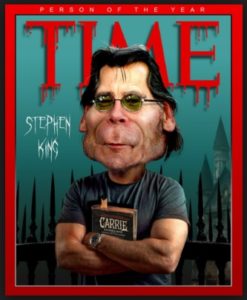 Storytelling’s master of monsters and sheik of shock is Stephen King. He’s scared the shit out of millions and his audience is massive. They love it and keep coming back for more. It’s because Stephen King gives readers pleasure.
Storytelling’s master of monsters and sheik of shock is Stephen King. He’s scared the shit out of millions and his audience is massive. They love it and keep coming back for more. It’s because Stephen King gives readers pleasure.
I’ve repeatedly sent emails to Stephen King asking permission to republish an outstanding article he wrote years ago. It’s called Why We Crave Horror Movies.
I don’t know if the master’s too busy or if I’m a small pupil, but Stephen King ignores me. Nerve of him, after all the money I spent on his stuff.
So I said “Fuck Stephen King.” I’m tired of waiting.
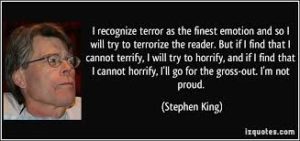 Stephen King’s piece on why we love getting shit-scared is just too good not to share. Therefore, I evoke the “doctrine of fair use and open source domain in accordance to the statutory and common-law allowances of the country of publication”. Besides, you can download and read the pdf here.
Stephen King’s piece on why we love getting shit-scared is just too good not to share. Therefore, I evoke the “doctrine of fair use and open source domain in accordance to the statutory and common-law allowances of the country of publication”. Besides, you can download and read the pdf here.
* * *
Why We Crave Horror Movies–By Stephen King
I think that we’re all mentally ill; those of us outside the asylums only hide it a little better—and maybe not all that much better, after all. We’ve all known people who talk to themselves, people who sometimes squinch their faces into horrible grimaces when they believe no one is watching, people who have some hysterical fear—of snakes, the dark, the tight place, the long drop . . . and, of course, those final worms and grubs that are waiting so patiently underground.
When we pay our four or five bucks and seat ourselves at tenth-row center in a theater showing a horror movie, we are daring the nightmare.
Why? Some of the reasons are simple and obvious. To show that we can, that we are not afraid, that we can ride this roller coaster. Which is not to say that a really good horror movie may not surprise a scream out of us at some point, the way we may scream when the roller coaster twists through a complete 360 or plows through a lake at the bottom of the drop. And horror movies, like roller coasters, have always been the special province of the young; by the time one turns 40 or 50, one’s appetite for double twists or 360-degree loops may be considerably depleted.
We also go to re-establish our feelings of essential normality; the horror movie is innately conservative, even reactionary. Freda Jackson as the horrible melting woman in Die, Monster, Die! confirms for us that no matter how far we may be removed from the beauty of a Robert Redford or a Diana Ross, we are still light-years from true ugliness.
And we go to have fun.
Ah, but this is where the ground starts to slope away, isn’t it? Because this is a very peculiar sort of fun, indeed. The fun comes from seeing others menaced – sometimes killed. One critic has suggested that if pro football has become the voyeur’s version of combat, then the horror film has become the modern version of the public lynching.
It is true that the mythic “fairy-tale” horror film intends to take away the shades of gray . . . . It urges us to put away our more civilized and adult penchant for analysis and to become children again, seeing things in pure blacks and whites. It may be that horror movies provide psychic relief on this level because this invitation to lapse into simplicity, irrationality, and even outright madness is extended so rarely. We are told we may allow our emotions a free rein . . . or no rein at all.
If we are all insane, then sanity becomes a matter of degree.
If your insanity leads you to carve up women like Jack the Ripper or the Cleveland Torso Murderer, we clap you away in the funny farm (but neither of those two amateur-night surgeons was ever caught, heh-heh-heh); if, on the other hand, your insanity leads you only to talk to yourself when you’re under stress or to pick your nose on your morning bus, then you are left alone to go about your business . . . though it is doubtful that you will ever be invited to the best parties.
The potential lyncher is in almost all of us (excluding saints, past and present; but then, most saints have been crazy in their own ways), and every now and then, he has to be let loose to scream and roll around in the grass. Our emotions and our fears form their own body, and we recognize that it demands its own exercise to maintain proper muscle tone. Certain of these emotional muscles are accepted – even exalted – in civilized society; they are, of course, the emotions that tend to maintain the status quo of civilization itself. Love, friendship, loyalty, kindness — these are all the emotions that we applaud, emotions that have been immortalized in the couplets of Hallmark cards and in the verses (I don’t dare call it poetry) of Leonard Nimoy.
When we exhibit these emotions, society showers us with positive reinforcement; we learn this even before we get out of diapers. When, as children, we hug our rotten little puke of a sister and give her a kiss, all the aunts and uncles smile and twit and cry, “Isn’t he the sweetest little thing?” Such coveted treats as chocolate-covered graham crackers often follow. But if we deliberately slam the rotten little puke of a sister’s fingers in the door, sanctions follow – angry remonstrance from parents, aunts and uncles; instead of a chocolate-covered graham cracker, a spanking.
But anticivilization emotions don’t go away, and they demand periodic exercise. We have such “sick” jokes as, “What’s the difference between a truckload of bowling balls and a truckload of dead babies?” (You can’t unload a truckload of bowling balls with a pitchfork . . . a joke, by the way, that I heard originally from a ten-year-old.) Such a joke may surprise a laugh or a grin out of us even as we recoil, a possibility that confirms the thesis: If we share a brotherhood of man, then we also share an insanity of man. None of which is intended as a defense of either the sick joke or insanity but merely as an explanation of why the best horror films, like the best fairy tales, manage to be reactionary, anarchistic, and revolutionary all at the same time.
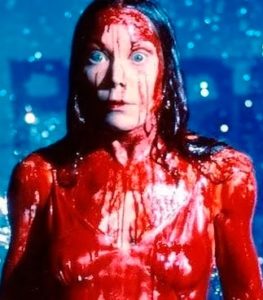 The mythic horror movie, like the sick joke, has a dirty job to do. It deliberately appeals to all that is worst in us. It is morbidity unchained, our most base instincts let free, our nastiest fantasies realized . . . and it all happens, fittingly enough, in the dark. For those reasons, good liberals often shy away from horror films. For myself, I like to see the most aggressive of them – Dawn of the Dead, for instance – as lifting a trap door in the civilized forebrain and throwing a basket of raw meat to the hungry alligators swimming around in that subterranean river beneath.
The mythic horror movie, like the sick joke, has a dirty job to do. It deliberately appeals to all that is worst in us. It is morbidity unchained, our most base instincts let free, our nastiest fantasies realized . . . and it all happens, fittingly enough, in the dark. For those reasons, good liberals often shy away from horror films. For myself, I like to see the most aggressive of them – Dawn of the Dead, for instance – as lifting a trap door in the civilized forebrain and throwing a basket of raw meat to the hungry alligators swimming around in that subterranean river beneath.
Why bother?
Because it keeps them from getting out, man. It keeps them down there and me up here. It was Lennon and McCartney who said that all you need is love, and I would agree with that.
As long as you keep the gators fed.
* * *
There. That’s the best explanation of why we love getting shit-scared.
 So where am I going with this monster, fear, and pleasure thing? Well, I’m doing shameless, self-promotion for the stories I write.
So where am I going with this monster, fear, and pleasure thing? Well, I’m doing shameless, self-promotion for the stories I write.
I write about human monsters because I’ve met a bunch and I try explaining how I think these extremely dangerous, fascinating, social-rejects operate. I also try portraying how police investigators behave—how real cops use creative and technological aids in modern-day monster-catching.
I believe an author’s storytelling job is to entertain, educate, and enlighten—and I believe there’s an intense reader interest in psychological crime thrillers. Here’s a snapshot of what I’m up to.
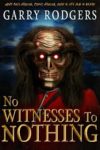 No Witnesses To Nothing is based on the true story of Michael Oros—a deranged bushman, terrorizing the frozen Canadian north and murdering people. Legend said Oros was the monstrous manifestation of a mythical shapeshifter who hunts people, kills them, and steals their souls. It’s also an intertwined, true story of two police informants who were murdered in apparent police-ordered hits. Deep down, No Witnesses To Nothing is not really a crime thriller. It’s a serious search for the science and spirituality behind our human existence. The soul.
No Witnesses To Nothing is based on the true story of Michael Oros—a deranged bushman, terrorizing the frozen Canadian north and murdering people. Legend said Oros was the monstrous manifestation of a mythical shapeshifter who hunts people, kills them, and steals their souls. It’s also an intertwined, true story of two police informants who were murdered in apparent police-ordered hits. Deep down, No Witnesses To Nothing is not really a crime thriller. It’s a serious search for the science and spirituality behind our human existence. The soul.
Get No Witnesses To Nothing here.
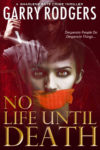 No Life Until Death is the black-market world of international human organ trafficking. It parlays characters from No Witnesses To Nothing and continues the series of Sharlene Bate Crime Thrillers. No Life Until Death follows paths of two families whose daughters are targeted by a monstrous pair of abductors harvesting human organs in North America and shipping parts to the Philippines. No Life Until Death‘s tagline is Desperate People Do Desperate Things.
No Life Until Death is the black-market world of international human organ trafficking. It parlays characters from No Witnesses To Nothing and continues the series of Sharlene Bate Crime Thrillers. No Life Until Death follows paths of two families whose daughters are targeted by a monstrous pair of abductors harvesting human organs in North America and shipping parts to the Philippines. No Life Until Death‘s tagline is Desperate People Do Desperate Things.
Get No Life Until Death here.
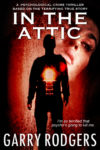 In The Attic is the true story I investigated where Billy Ray Shaughnessy, a monstrous psychopath, hid in Maria Dersch’s attic with an ax. He climbed down at 3 a.m., slaughtering Maria and her new lover. It’s told in first-person with me, as the detective, narrating the story before and after the murders, as well as in Billy Ray’s homicidal thoughts while he lurked eight feet above. In The Attic‘s dialogue comes from actual transcripts and notes of my interviews with Maria and Billy Ray.
In The Attic is the true story I investigated where Billy Ray Shaughnessy, a monstrous psychopath, hid in Maria Dersch’s attic with an ax. He climbed down at 3 a.m., slaughtering Maria and her new lover. It’s told in first-person with me, as the detective, narrating the story before and after the murders, as well as in Billy Ray’s homicidal thoughts while he lurked eight feet above. In The Attic‘s dialogue comes from actual transcripts and notes of my interviews with Maria and Billy Ray.
Get In The Attic here.
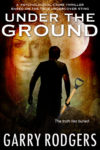 Under The Ground is from another factual case—the story of Esa Raasanaen and Kristen Madsen. It’s a monstrous tale of murder where Kristen disappeared and Esa was suspected of killing Kristen, disposing of her body. Under The Ground follows a highly-complex, psychological undercover sting where Esa was sucked into a fictional organized crime group. He confessed to the undercover operator and turned over Kristen’s body. What Esa did to Kristen…where he’d hidden her…was horrific—shocking to the most seasoned homicide investigators.
Under The Ground is from another factual case—the story of Esa Raasanaen and Kristen Madsen. It’s a monstrous tale of murder where Kristen disappeared and Esa was suspected of killing Kristen, disposing of her body. Under The Ground follows a highly-complex, psychological undercover sting where Esa was sucked into a fictional organized crime group. He confessed to the undercover operator and turned over Kristen’s body. What Esa did to Kristen…where he’d hidden her…was horrific—shocking to the most seasoned homicide investigators.
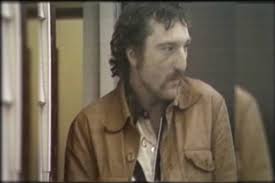 From The Shadows is my newest crime-thriller. The manuscript is underway. It’s based on the shocking true story of the worst monster imaginable. David Shearing murdered six members of the Johnson-Bentley family—three generations—to fulfill his psychopathic and pedophilic desire in capturing two pre-teen girls as sex slaves. From The Shadows follows the discovery of an unspeakable crime, the frustrating two-year investigation, and the final psychological break-down of Shearing during an outstanding police interrogation.
From The Shadows is my newest crime-thriller. The manuscript is underway. It’s based on the shocking true story of the worst monster imaginable. David Shearing murdered six members of the Johnson-Bentley family—three generations—to fulfill his psychopathic and pedophilic desire in capturing two pre-teen girls as sex slaves. From The Shadows follows the discovery of an unspeakable crime, the frustrating two-year investigation, and the final psychological break-down of Shearing during an outstanding police interrogation.
No Witnesses To Nothing, No Life Until Death, and In The Attic are currently available on Amazon.
Under The Ground is readying for publication. From The Shadows is close behind. I’m looking for ARC (Advance Reading Copy) readers for these two stories, so if you’d like an eBook file of either/both, email me at garry.rodgers@shaw.ca and I’ll ship you the monster stories.


